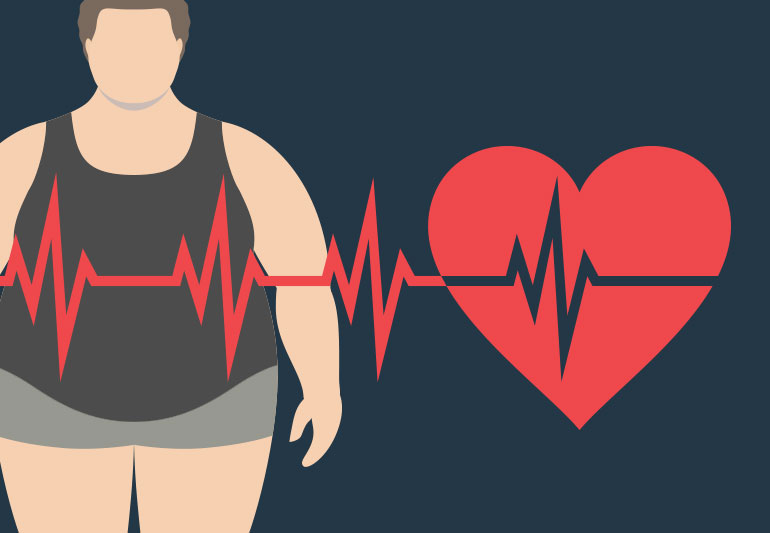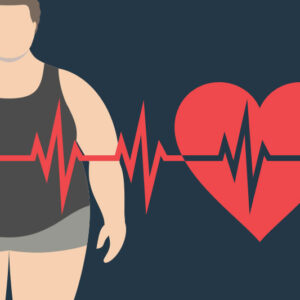
Obesity means excess of body fat that is measured by BMI (Body mass index). Normal BMI is between 18 and 25, BMI above 30 is known as obese. Obesity causes many health problems like heart diseases, cancer, diabetes, sleep apnea, arthritis and many more. Here we discuss impacts of obesity on cardiovascular system and heart diseases.
Obesity causes chronic inflammation that leads to insulin resistance that means trouble in regulating blood sugar levels which results in metabolic syndrome that means it’s a cluster of conditions that have risk factors for heart diseases like:
- High triglycerides, high total cholesterol and high LDL cholesterol
- High blood pressure
- High blood sugar
- Low HDL cholesterol
Heart Problems Related to Obesity
Coronary Artery Disease:
Obesity is a risk factor for coronary artery disease as cholesterol plaques builds up in arteries and causes atherosclerosis and it narrows or blocked coronary artery supplying blood to heart. Obesity also causes diabetes, metabolic syndrome, high blood pressure, high cholesterol all these are risk factors for coronary artery disease.
Heart Failure:
Obesity causes heart failure in 2 ways. First, it causes ventricular hypertrophy, because obese people have high amount of blood so heart has to work harder to pump blood and this increase the size of ventricular muscles and causes hypertrophy which eventually cause heart failure. Second, obesity is linked to sleep apnea, a condition of lung diseases and high blood pressure and it too leads to heart failure.
Atrial Fibrillation:
Obesity also increase the risk of atrial fibrillation, a type of abnormal heart rhythm. The mechanism of obesity to heart failure is closely related to atrial fibrillation. Atrial fibrillation further increase risk for sudden cardiac death, thromboembolic complications and heart failure.
How do I Reduce my Risk of Heart disease, If I have Obesity?
Well there are plenty of ways you can adopt to reduce your risk of heart diseases and first you have to lose some weight to reduce your BMI. 5% to 10% of weight loss can help to reduce the risk of heart diseases. You also have to change your lifestyle habit and some dietary changes.
Here are the steps you have to follow to reduce the risk of heart diseases:
- Aerobic Exercises: 30 minutes of daily aerobic activity helps to lower belly fat and overall obesity. You can start with jumping, stair training, dancing that will keeps you motivated and use to. Aerobic exercise is the most beneficial way to loss excess fat because body need oxygen to lose fat and that’s the way.
- Dietary Changes: A good and healthy diet helps to reduce weight. Avoid intake of fat and high calorie in your diet. You have to stick on plant based food like vegetables, fruits, legumes, nuts, grains and some dairy like eggs, fish, lean poultry, sea food and fish oil.
- Medications: drugs which reduce weight are good for treating obesity.
- Quit Smoking: quitting smoke prevent risk for heart diseases as well as risk of death from heart diseases. You need to consult your doctor for quitting.
- Weight loss Surgery: weight loss surgery reduce a high amount of fat and helps in improving metabolism.
Conclusion
If you have obesity than you are at higher risk for developing heart diseases. You must lose weight by doing exercise or by dietary changes. Beside lifestyle modifications there are medications and surgery to lose weight and prevent risk of cardiovascular diseases. Losing 5% to 10% even make a difference.
